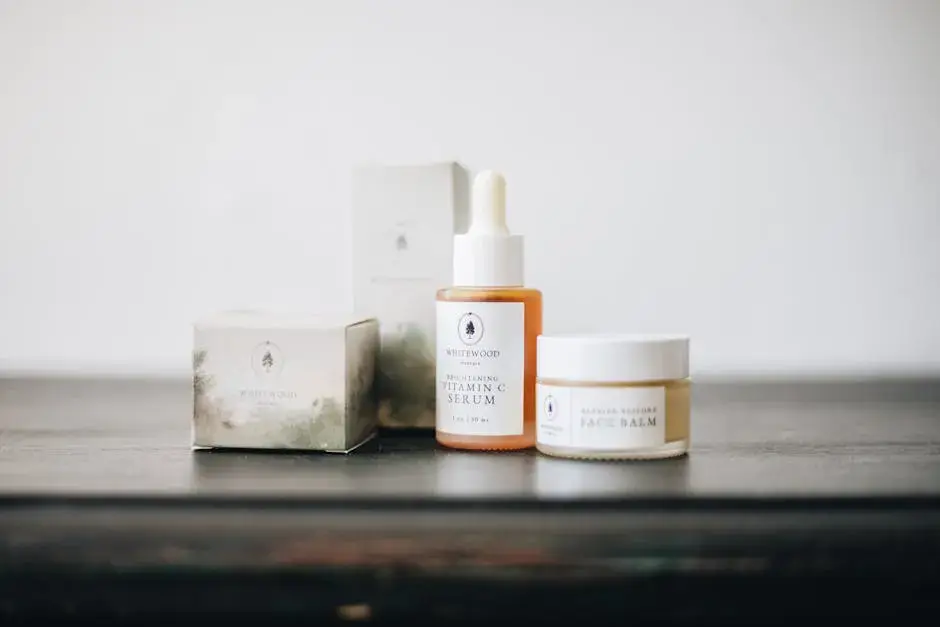Is a Collagen Boost Suitable for All Skin Types?
- Seona seona@usestyle.ai
- May 19, 2025
- 3 min read
Collagen boosts are all the rage in skincare, but are they appropriate for everyone? In this article, we'll explore whether a collagen boost is suitable for different skin types, diving into the characteristics and needs of each. Let's find out if it can work wonders for your skin!

Understanding Collagen and Its Benefits
Learn about what collagen is, how it supports skin health, and why boosting it might be beneficial.
Collagen is a protein that acts as a building block for your skin, hair, and nails. It gives your skin structure and elasticity, making it crucial for maintaining a youthful appearance. As we age, natural collagen production decreases, leading to fine lines and sagging skin. Many people seek collagen boosts to combat these signs of aging because they can enhance skin hydration, improve elasticity, and reduce the visibility of wrinkles.
Additionally, collagen boosts can promote overall skin health by aiding in the healing process, especially for acne scars or other blemishes. By replenishing collagen, you may achieve a plumper and more radiant complexion. It's essential to note, however, that the effectiveness of these boosts can vary based on individual skin conditions and concerns.
Identifying Your Skin Type
Discover the different skin types—normal, oily, dry, and combination—to better understand how they interact with collagen products.
Before diving into the world of collagen boosts, it’s important to identify your skin type. Normal skin has a balanced amount of oil and moisture, while oily skin tends to produce excess oil, often leading to shine and breakouts. Conversely, dry skin can feel tight, rough, or flaky due to a lack of natural oils. Combination skin features aspects of all types, typically oily in the T-zone but dry on the cheeks.
Understanding your skin type is crucial since it dictates how your skin will react to different products, including collagen boosts. For example, those with oily skin may need to be cautious with collagen creams that contain heavy oils, whereas dry skinned individuals may benefit greatly from the added moisture that collagen products provide.
Knowing your skin type not only helps you select appropriate products but also guides your overall skincare regime, including how frequently you may want to apply collagen boosts.
How Collagen Boosts Work for Each Skin Type
Explore how each skin type can benefit from collagen boosts and any specific considerations to keep in mind.
For those with normal skin, collagen boosts often serve as a preventative measure to delay the signs of aging. Applying a collagen-enhanced serum can help maintain your skin's balanced state while promising youthful vitality. It's almost like an extra layer of protection against environmental stressors!
If you have oily skin, collagen boosts can still be beneficial but require careful selection. Opt for lightweight formulas that won't clog your pores. Look for serums that contain gel bases or light oils to reap the benefits without risking breakouts.
Dry skin types will appreciate the hydrating qualities of collagen boosts. A rich cream or serum packed with collagen can greatly improve skin texture and moisture retention. Be sure to use these products consistently to witness visible improvements over time.
For combination skin, choosing a versatile product is key. Focus on areas that need extra hydration while avoiding overly creamy products on oilier parts. This balance can provide your skin with the dual benefits of moisture and elasticity without compromising its natural state.
Potential Risks and Considerations
Evaluate any risks associated with collagen boosts, particularly for sensitive or problematic skin types.
While collagen boosts offer promising benefits, not every skin type will respond well. Those with sensitive skin might experience irritation or allergic reactions to certain ingredients found in collagen products. Always perform a patch test before applying new products widely.
Moreover, collagen boosts can be a bit heavy for those with acne-prone skin. Ingredients in some collagen products can exacerbate breakouts, so looking for non-comedogenic formulations is crucial. Always read labels and understand your own skin's sensitivities.
Consulting a Professional
Understand the importance of seeking professional advice tailored to your specific skin needs when considering a collagen boost.
When in doubt about collagen boosts, consulting a dermatologist can provide tailored advice. Professionals can assess your skin's condition, recommend suitable products, and develop a personalized skincare strategy.
A dermatologist can help you navigate potential allergens and find formulations that effectively target your specific skin concerns. This personalized approach ensures that you’re making informed decisions, ultimately leading to healthier, happier skin.
Final Thoughts on Collagen Boosts
In conclusion, a collagen boost can be beneficial for many skin types, but understanding your unique skin condition is key. It's always a good idea to consult with a dermatologist to determine the best skincare approach for you.



Comments